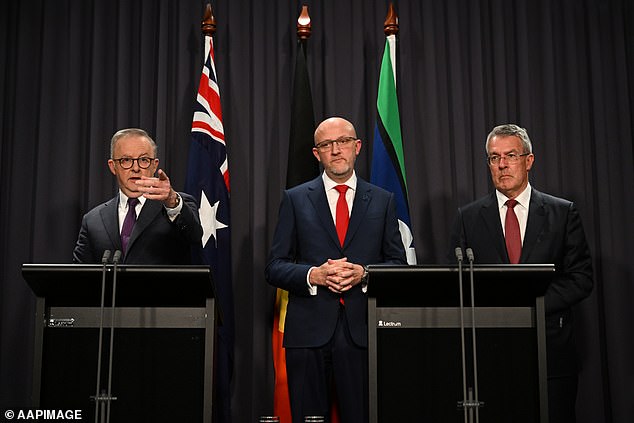Anthony Albanese issues urgent warning as Australia’s terrorism threat level raised from possible to probable

Australia’s terrorism threat level has been raised from possible to probable due to an increased risk of politically motivated violence.
While not specifically brought forward for any one incident, eight incidents in Australia have reportedly been investigated by security officials for suspected terrorism or possible terrorist links.
The Middle East conflict is also said to have increased security services’ concerns about politically motivated violence in Australia. However, it is not the direct cause of the rising threat level.
It is the first time since 2014 that the threat level has been raised, while the threat from the terrorist group Islamic State was at its peak.
Prime Minister Anthony Albanese said the national security committee met Monday morning to discuss the change.
“Likely does not mean inevitable and it does not mean that there is intelligence of an imminent danger or imminent situation. But the advice we have been given is that more and more Australians are embracing a wider range of extreme ideologies,” he told reporters in Canberra.
‘Governments around the world are concerned about radicalisation among young people, online radicalisation and the rise of new, mixed ideologies.’
According to Mike Burgess, Director-General of ASIO, more Australians are embracing more extreme ideologies and using violence to achieve their goals.

Anthony Albanese says more Australians are embracing a more diverse range of extreme ideologies (Lukas Coch/AAP PHOTOS)
“Politically motivated violence is now one of our top security concerns, along with espionage and foreign interference,” he said.
‘Unfortunately, here and abroad we see an increase in political polarization, intolerance, civil debate and peaceful protests.’
According to Mr Burgess, anti-authority sentiments are also increasing and trust in democratic institutions is declining.
“This trend continued during COVID, gained further momentum after the terrorist attacks in Israel, and accelerated during Israel’s military response,” he said.
‘The (Middle East) conflict has fueled discontent, fueled protests, deepened divisions, undermined social cohesion and increased intolerance.’
There were also concerns that multiple extremist beliefs would be combined to create hybrid ideologies.
The director-general said lone perpetrators are the most likely form of terrorist attack, often using simple weapons in a crowded or public place.
Mr Burgess also noted that a large number of young people are becoming radicalised.
“Extremist ideologies, conspiracies and misinformation thrive in the online ecosystem and young Australians are particularly vulnerable,” he said.
‘Because our words and actions matter.
“I want to reassure Australians: probable does not mean inevitable and it does not mean this is information about an imminent threat,” Albanese said.
ASIO Director Mike Burgess said the decision was taken after careful consideration.
“Our decision reflects a deteriorating security situation,” Burgess said.
The threat level ‘probable’ is assessed if the chance of an attack planning in the next 12 months is greater than 50 percent.
“That does not mean that we have information about current attack plans or the expectation of an imminent attack.”
He said the decision had nothing to do with current events in the Middle East.




